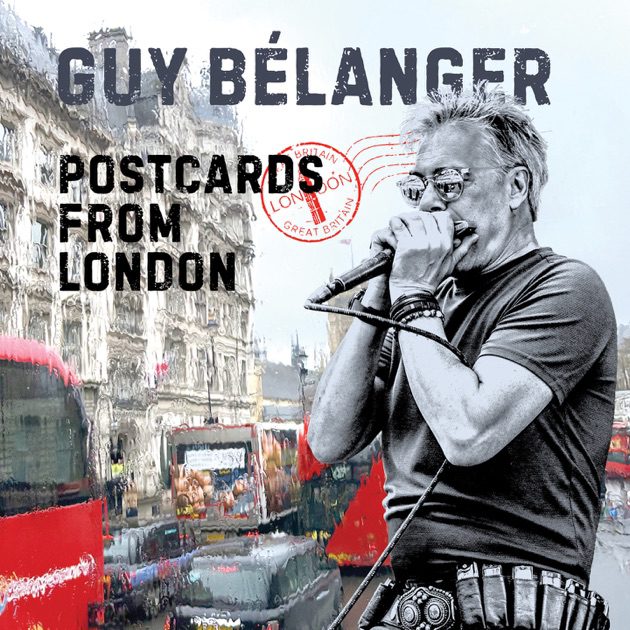
By Michel Plante and Robert Schryer
To mark his 50th career anniversary, harmonica player Guy Bélanger received one of the greatest gifts a musician could dream of: the chance to record his 10th album, Postcards From London, at the legendary Studio 2 of Abbey Road, accompanied by his band and young sound engineer Charles-Émile Beaudin.
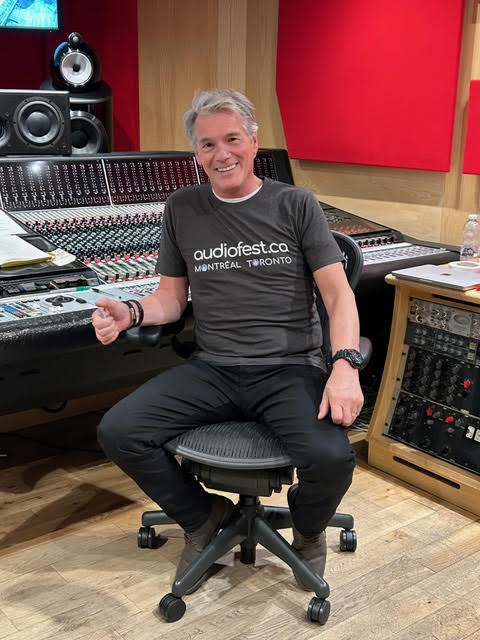
As you might have guessed, very few Quebecers have ever set foot in this historic London studio. Much of it has remained unchanged since the Beatles’ last recording session. Even “Mrs. Mills—the Steinway Vertegrand upright piano heard on “Penny Lane” and “With a Little Help from My Friends” in 1967—still stands proudly in the studio.
How does one add their own page of history to these walls that have seen and heard everything—or almost? Just think of Alan Parsons, David Bowie, Pink Floyd, Amy Winehouse, Massive Attack, Oasis, Nick Cave, Shirley Bassey, Tony Bennett, Lady Gaga, not to mention the Fab Four, and so many others who became legends.
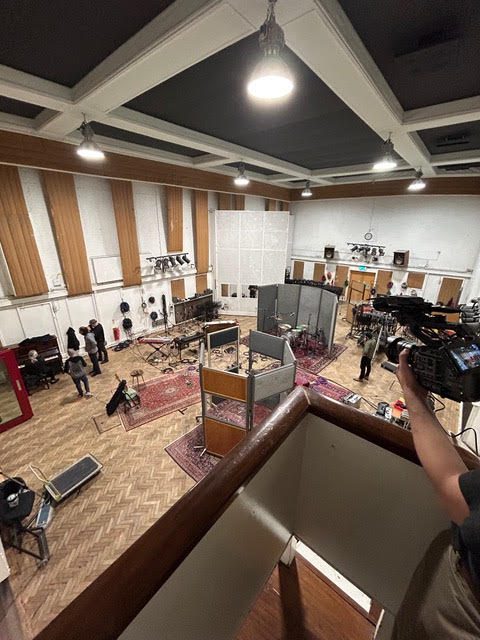
It all begins with producer Jean Ouimet, who thinks big for Quebec artists and believes that with “I should have’s,” no page of history ever gets written.
Besides, the story of Abbey Road Studios is inseparable from that of recorded music. In 1929, when recordings were still being made acoustically with a large wooden horn and wax discs, the Gramophone Company saw an opportunity and began searching for a site to support the new electrical recording industry. They found a nine-bedroom house with a large garden in St. John’s Wood, northwest London, and purchased it for £16,500 before spending two years building the world’s first purpose-built recording studios.
On November 12, 1931, at the opening ceremony, the Gramophone Company had already merged with the Columbia Graphophone Company to form the famed Electrical and Musical Industries (EMI).
Jean teamed up with René Moisan of Productions Bros, who co-produced all of Guy’s albums, including this one, and who handles distribution in record shops and on streaming platforms through his Bros record label, as well as with Mario Gagnon, a hi-fi industry veteran and a longtime co-producer with whom he had already collaborated back in the Bob Walsh days, to bring this project together. Mario had the intuition to invite Sarah and me — my spouse and business partner — to join as sponsors. He started the conversation on a street corner on Ontario Street, and we had already agreed by the time we reached the other side of the road. It was a no-brainer!”
Only one more sponsor was needed to meet the budget, and that turned out to be audiophile and master brewer Sylvain Robitaille, who joined the group.
Thus, Guy Bélanger became the third Quebecer to record at Abbey Road. Daniel Lavoie recorded there in 2024, as well as the duo 2 Frères, who that same year re-recorded an acoustic version of their song “Croire en nous.”
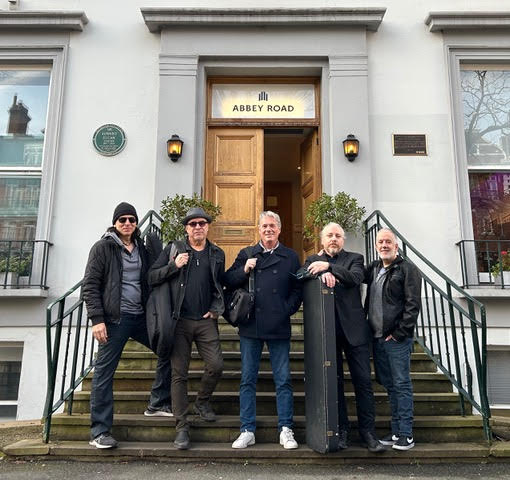
Several video clips are available that capture what Guy and his impeccably prepared musicians experienced. After just four days, they left the studio having recorded 10 songs, proud to have etched, if not a full chapter, at least a paragraph into the history of Studio 2.
Michel Plante and Sarah Tremblay are the owners of PMA Magazine and the Montreal and Toronto Audiofests.
**************************************************
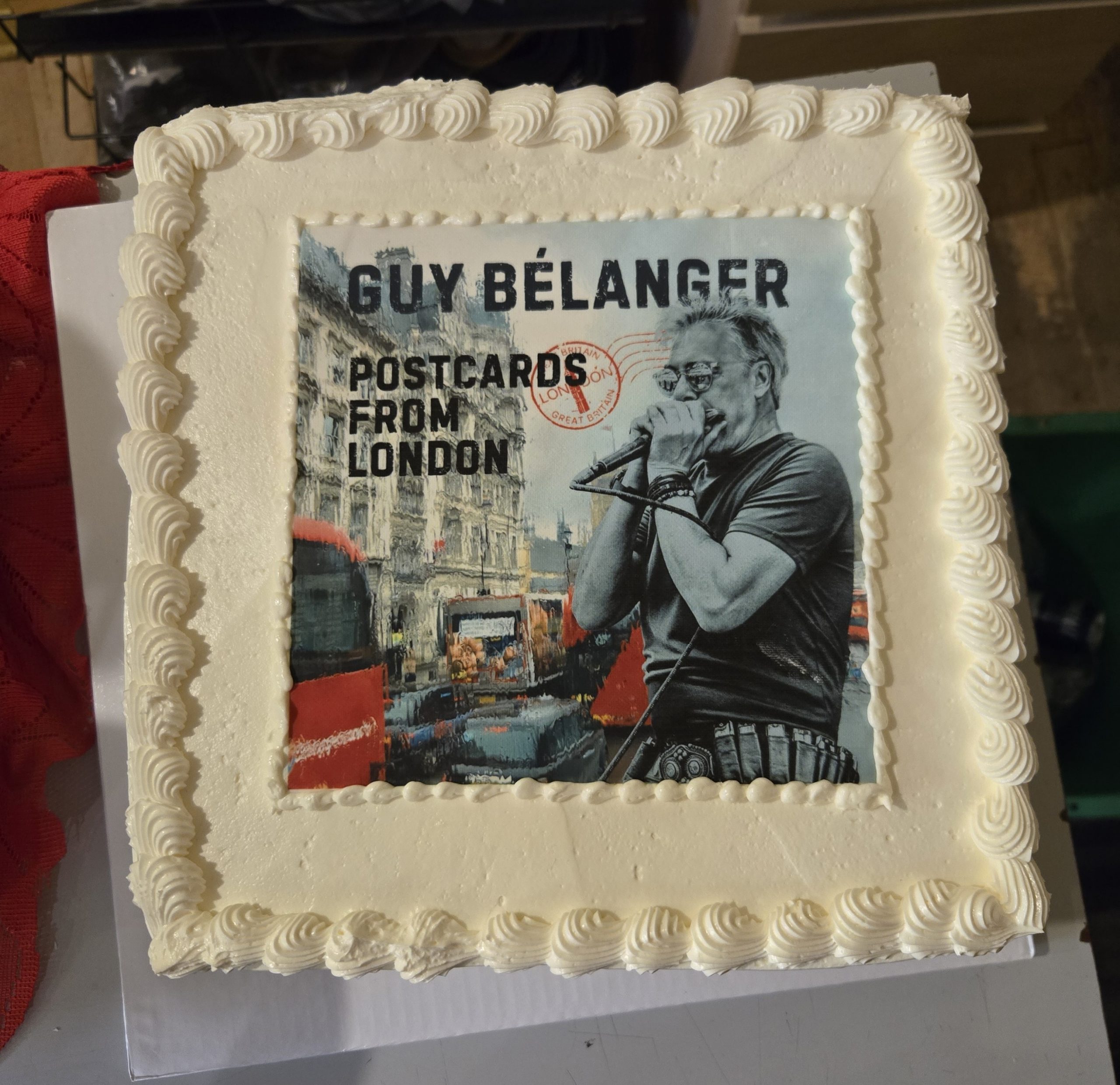
I had the pleasure of attending the listening party for the launch of Guy Bélanger’s new album, Postcards from London, at Hi-Fi Pro, an audio store just east of downtown Montreal owned by Mario Gagnon, one of the album’s producers. All the major players—those who made the record happen—were there, mingling and savoring the moment, including the man without whom this project would never have happened: Jean Ouimet. The album was his idea, and he’s the one who got the ball rolling. When I asked what inspired him, Jean replied, “I was inspired by a conference given by Mylène Paquette, the first person from the Americas to row solo across the North Atlantic, from west to east.”
He continued: “She spoke about daring to realize your wildest dreams. That made me wonder—what would my own wildest dream be? For me, it was booking Abbey Road and producing an album with a Quebec artist!”
The album’s sponsors were also there, PMA Magazine’s Michel and Sarah, and erstwhile microbrewer Sylvain Robitaille, along with a couple of media types, including yours truly, and the core band members who were easy to pick out from the crowd because they looked cooler than the rest of us.
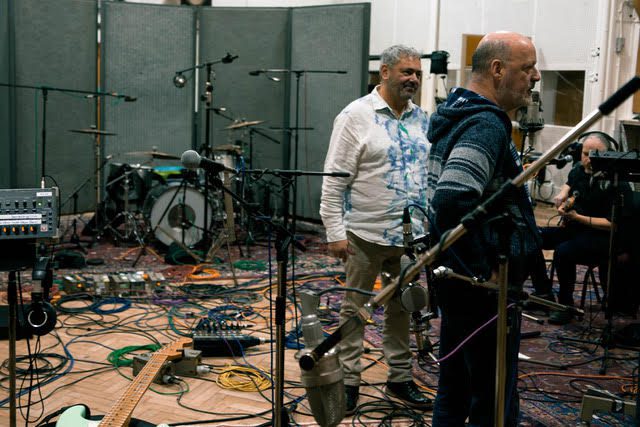
Where the album hit home for me musically, and compelled me to write this review, was during the listening portion of the event. I sat among other guests in a warmly appointed, cozy listening room and listened to the LP version of the album through a hi-fi setup consisting of a Stable 33.33 turntable with a Hana EL cartridge, an Atoll SDA300 integrated amp, a pair of Muraudio SP1 speakers, with interconnects by Atohm and speaker cables by Nordost.
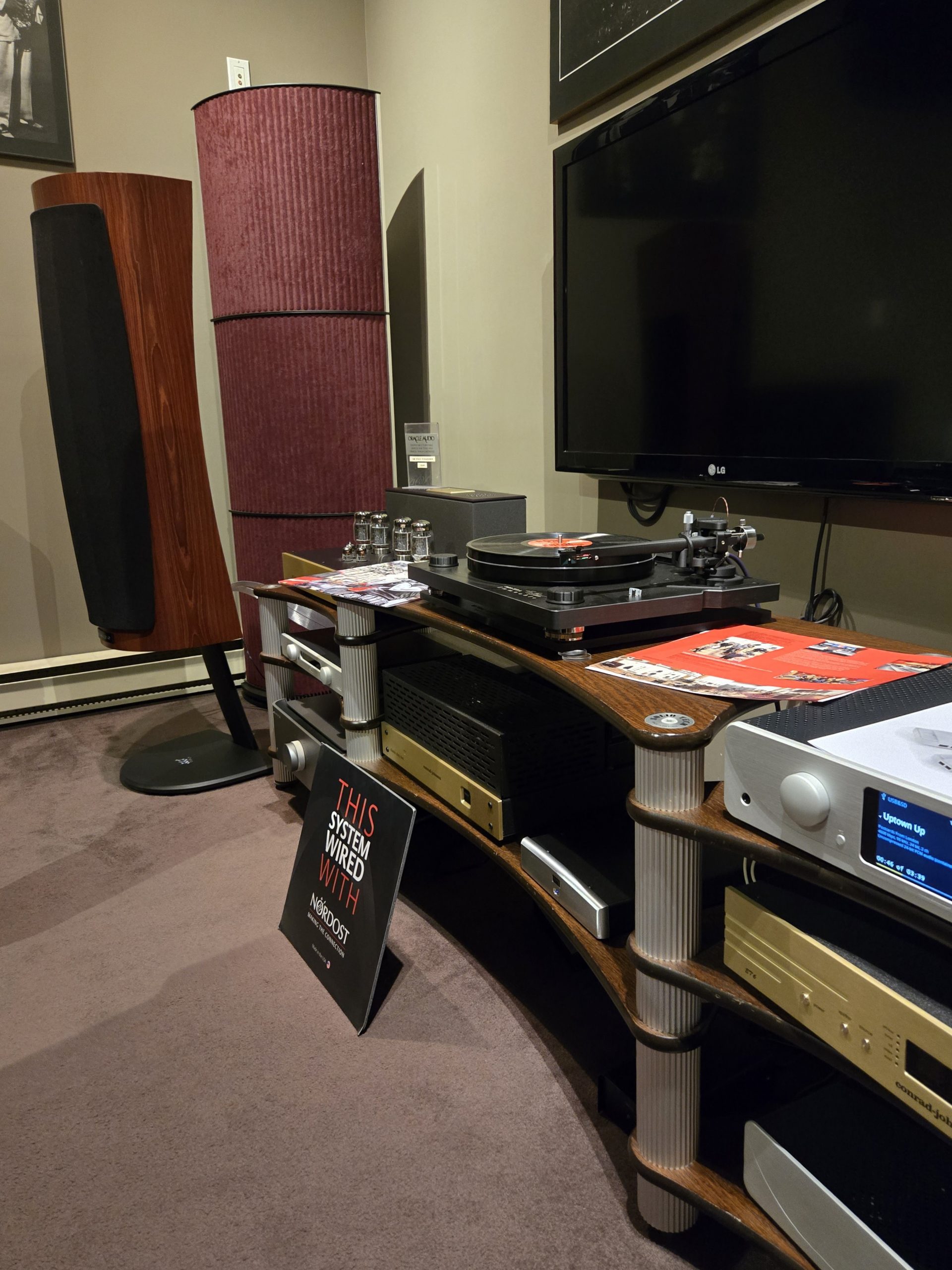
The music sounded great, sonically and creatively—filled with memorable riffs, top-tier playing, and tunes brimming with vitality. But mostly, what caught my attention were the frequent musical moments in the album where everything—the swelling mass of notes, the fusion of creativity and skill, the vibe—came together in ways that made the music seem to have taken on a life of its own. During such passages, I would look up from my notepad and just stare at the system, self-aware that I was witnessing something special—magical, even.
To begin with, this band is tight. They play like blood brothers. You can hear their synergy right out of the gate, on the up-tempo opening track, Maceo Parker’s “Uptown Up,” with its stop-on-a-dime chorus beat and alternating solos that swoop in and out of their lush environment like banshees in the world of Avatar. The musicians play off each other like telepaths.
Individually, each musician is a standout. Band leader and harmonicist Guy Bélanger sings deftly on the album—he takes the lead on a couple of tracks—but it’s his harmonica that takes center stage. He’s so fluent in the instrument’s language that it almost sounds human when he plays it, both tonally and emotionally. He has absolute control over it. One second, he’ll blow out something gruff and menacing; the next, as pure as a hymn from a choirboy soprano—and the transition between the two is utterly smooth. But whatever he plays, hard or soft, it always sounds lyrical and expressive.
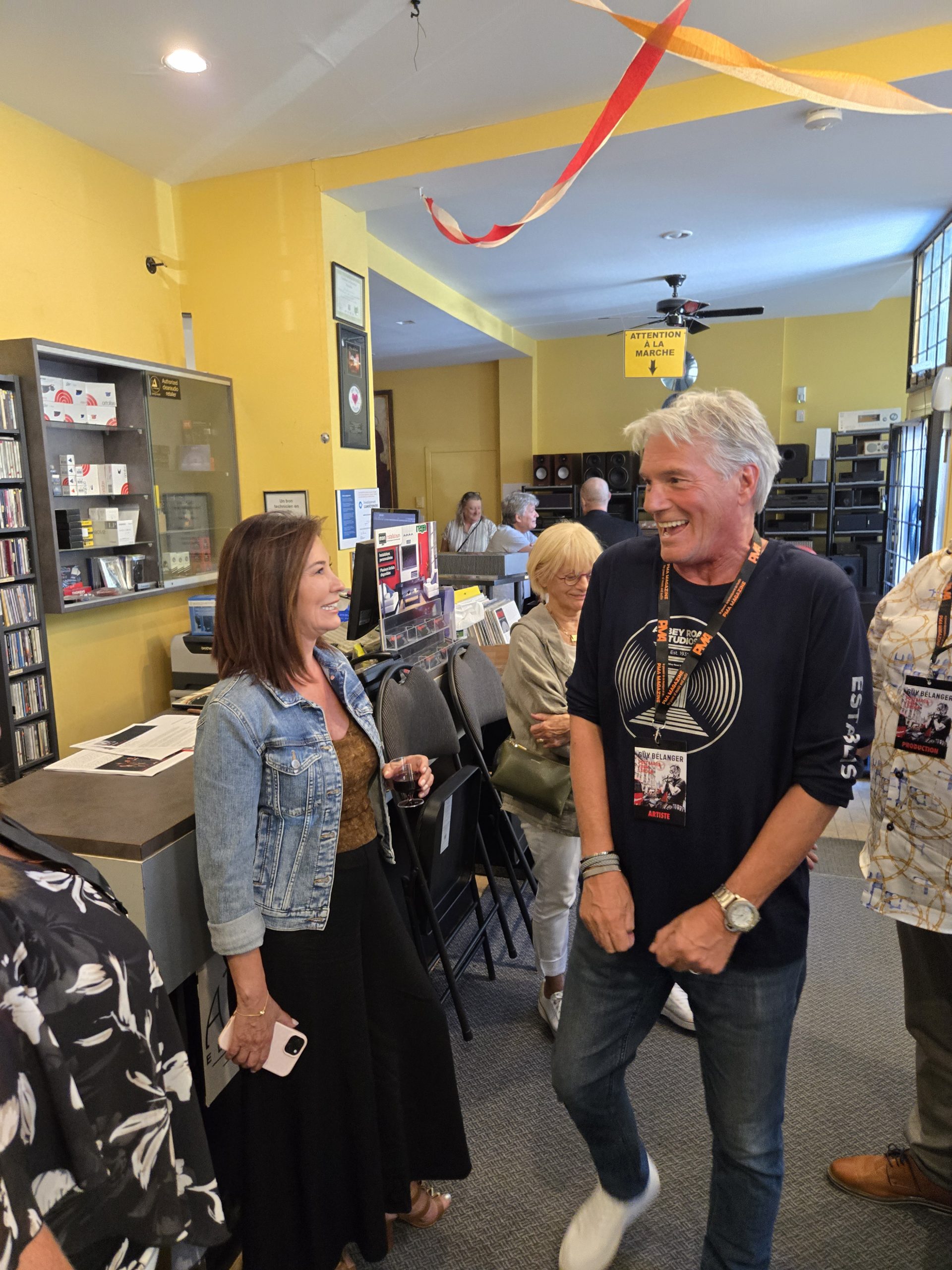
Another band member whose talent for musical expression seems to transcend the instrument itself is guitarist Rob MacDonald, who displays uncommon grace, composure, and fluidity in his technique. Like Guy, he plays his instrument as if it were a first language, using it almost like an interpreter. But it’s the lyricism and soaring arcs of his solos that make my head spin and my heart ache.
Pianist-organist Yves Frulla is another master of tone and expressiveness, laying down chords and trickling notes in rich, kaleidoscopic patterns. Drummer Dan Legault is unflinching in his beat, which he adorns with intricate fills that add character and a spring to the music. Bassist-singer Alec McElcheran delivers an articulate, sinewy undertow that helps keep the music afloat, plus he’s a good singer; his voice is appropriately bluesy—a bit raw, a bit deep, with a swinging sense of timing. My only regret is that he sings on just one song, “Think it Over,” which also happens to be one of my favourite tracks on the album.
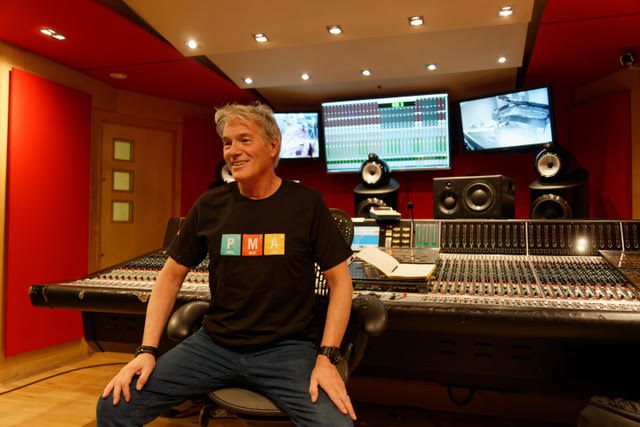
In fact, I have a lot of favourite stuff on Postcards from London—track-wise and moment-wise—even on the less bluesy numbers like the Guy Bélanger-penned “London Fog” and the David Ratté and Andréa Bélanger tune “The End of the Beginning,” both of which are written in a more meditative, evocative style while featuring great solos. And that’s another of my favourite things about this album: the solos. The album is full of them, and they all sound heartfelt, almost spiritual.
As you listen to the album—and I’ll extend this thought to the handful of guest musicians who contributed to some of the songs—you can tell the players are giving it their all and having a blast in the process. While it may be a blues-based album, a joyous, celebratory spirit runs through it.
“Postcards from London” is a snapshot of a band firing on all cylinders. Although I’ve already heard the album a dozen times or so, I’m still discovering new things in it with each listen. It’s not just a wonderful blues album—it’s a wonderful album, period.
**************************************************
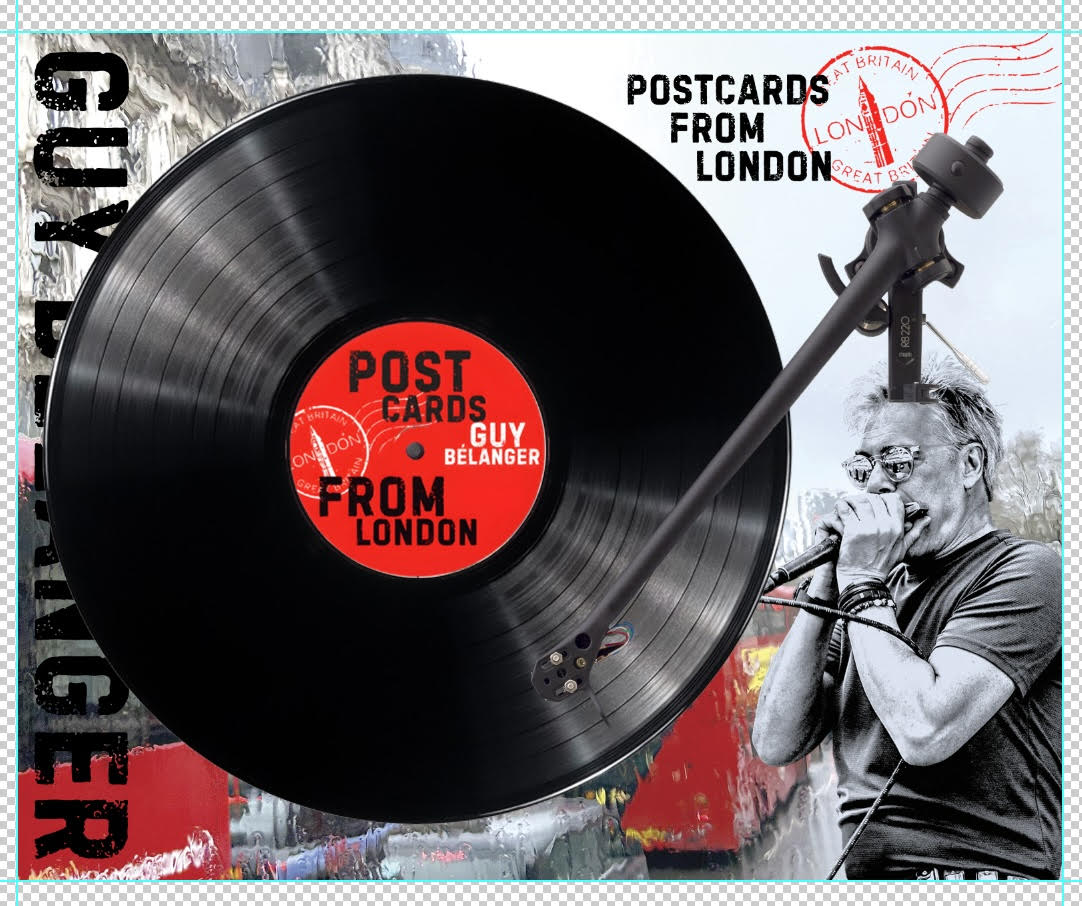
An aside: Sarah Tremblay and Michel Plante, owners of PMA Magazine and co-sponsors of Postcards from London, were present at the album’s recording at Abbey Road Studios in January when they received a call informing them that British audio manufacturer Rega Research might be looking for a new Canadian distributor. Two days later, they were at the company’s headquarters in Wales with a business plan. In May, joined by three partners, they became Rega’s new Canadian distributor. As a gesture of gratitude for their involvement in the Postcards from London project, the duo helped create a limited-edition Rega Guy Bélanger turntable, derived from the P2 model. It is available for CA$1099, exclusively at Hi-Fi Pro.
*
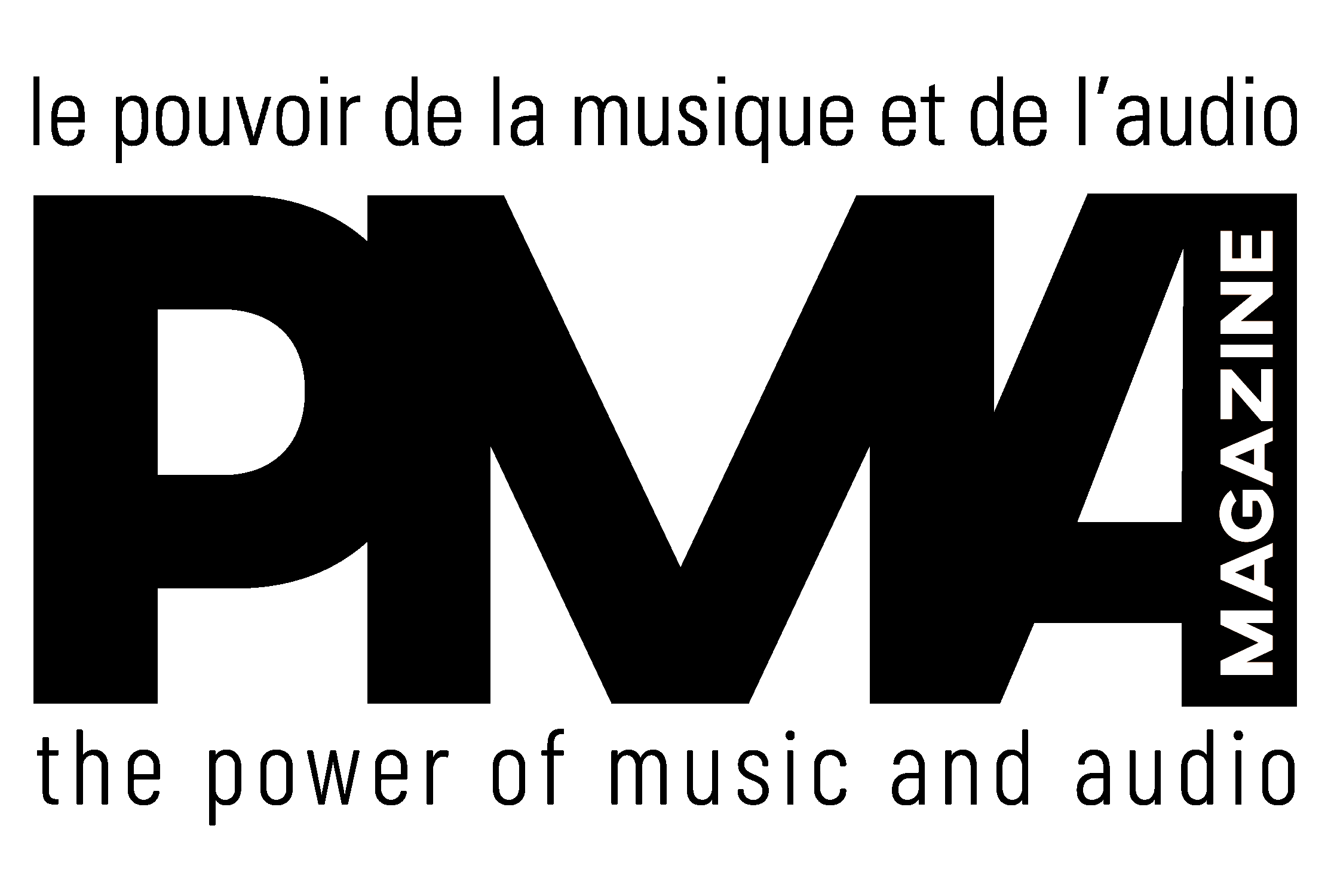

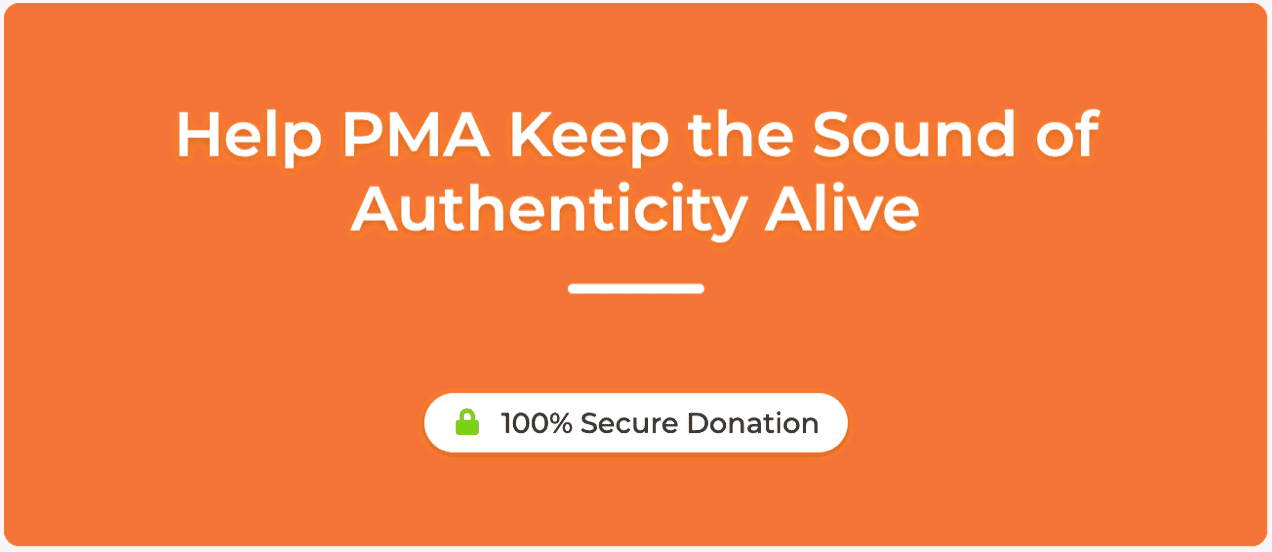





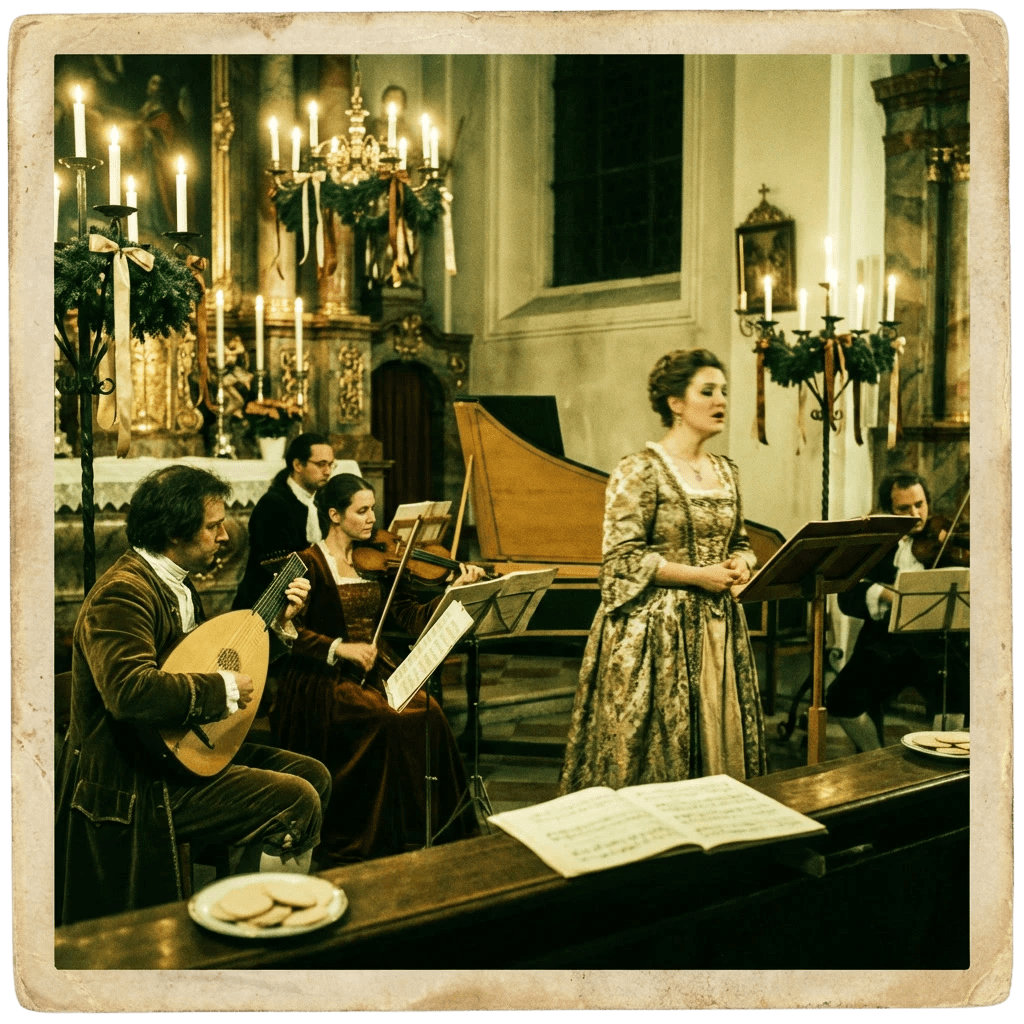






Leave a Reply